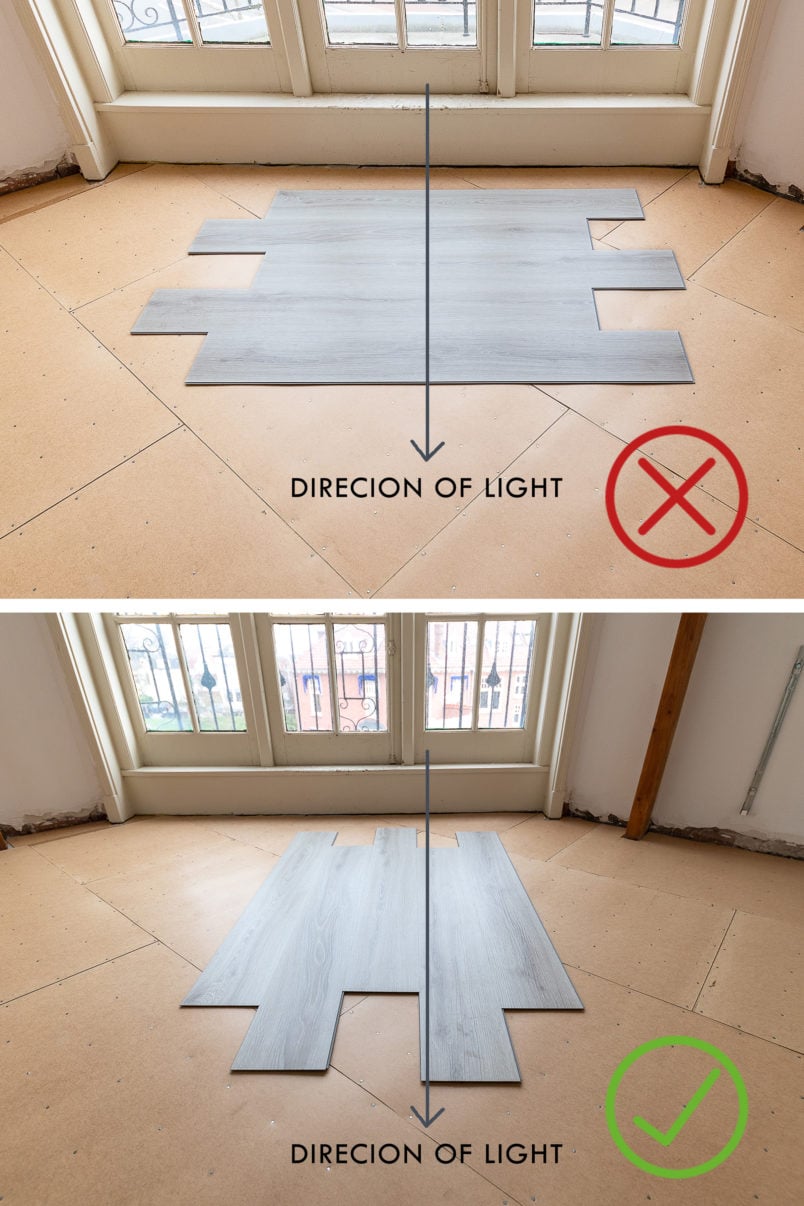Stepping into a beautifully designed home, you might not even consider the thickness of the floor beneath your feet. But as it turns out, the thickness of your vinyl plank flooring plays a crucial role in its durability, stability, and even its sound absorption. Choosing the right thickness can make all the difference, ensuring your floors stand the test of time and feel luxurious underfoot.

Image: imagetou.com
The world of vinyl plank flooring offers various thickness options, each with its own set of advantages and disadvantages. This guide will delve into the nuances of vinyl plank thickness, helping you make an informed decision that perfectly aligns with your specific needs and preferences.
What is Vinyl Plank Flooring?
Vinyl plank flooring, often called luxury vinyl plank (LVP) or vinyl tile flooring, has become a popular choice for homeowners seeking a stylish, durable, and budget-friendly alternative to traditional hardwood floors. This type of flooring consists of multiple layers:
- Wear Layer: The outermost layer that provides scratch and stain resistance.
- Design Layer: This layer showcases the realistic wood or stone patterns and textures.
- Core Layer: Provides structural integrity and stability, sometimes including a rigid core for added strength.
- Attached Underlayment: Some vinyl planks feature an attached underlayment for sound absorption and comfort.
- Backing: The bottom layer that helps the planks stay secure.
What Makes Vinyl Plank Thickness Important?
The thickness of the vinyl plank, specifically its core layer, plays a vital role in its overall performance. Here’s why choosing the right thickness is essential:
- Durability: A thicker core provides improved resistance to dents, scratches, and wear and tear, making the flooring suitable for high-traffic areas.
- Stability: A thicker core contributes to a more rigid and stable flooring surface. This is particularly important when installing vinyl plank flooring over subfloors with imperfections or unevenness.
- Sound Absorption: Thicker planks, especially those with attached underlayment, can effectively absorb sound, reducing noise transmission between floors.
- Subfloor Imperfections: Thicker planks can better bridge minor subfloor imperfections and create a smoother surface.
- Comfort: Thicker planks can increase the overall comfort and cushion of the flooring, reducing foot fatigue.
Common Thickness Options and What They Mean
Vinyl plank flooring comes in a range of thicknesses, typically measured in millimeters (mm). Here’s a breakdown of common thickness options:

Image: viewfloor.co
4mm
This is the standard thickness for most entry-level vinyl planks. While affordable, 4mm planks may not be as durable as thicker options. They tend to be less resilient to dents and scratches and are not ideal for areas with heavy foot traffic.
5mm
Stepping up a notch, 5mm vinyl planks offer greater resilience and stability. While still considered a standard thickness, they provide better dent resistance than 4mm options and are often suitable for moderately high-traffic areas.
6mm
This thickness level is often considered the sweet spot for vinyl plank flooring. 6mm planks strike a balance between durability and affordability, offering a good amount of stability and dent resistance. They are a popular choice for homeowners looking for a reliable and visually appealing flooring solution.
8mm
8mm vinyl planks are among the thickest options commonly available. They offer outstanding durability and a substantial feel underfoot. These planks are often recommended for high-traffic areas or situations where extra resilience is needed.
10mm
Some high-end vinyl plank flooring options reach up to 10mm in thickness. These planks represent the pinnacle of durability, stability, and sound absorption. They can comfortably handle even the most extreme conditions and are ideal for large areas or rooms with high traffic.
How to Choose the Right Thickness for Your Needs
The ideal thickness for vinyl plank flooring ultimately depends on several factors:
- Traffic Level: High-traffic areas, such as entryways, hallways, and kitchens, require thicker flooring for greater durability and resistance to dents.
- Subfloor Condition: If your subfloor is uneven or has imperfections, thicker planks will help create a smoother and more stable surface.
- Sound Absorption: If reducing noise transmission is a priority, opt for thicker planks or those with attached underlayment.
- Budget: Thicker options tend to be more expensive than thinner ones. Balance your budget with your desired level of durability and performance.
- Aesthetic: Consider the overall look and aesthetic of your home. Thicker planks can sometimes have a more substantial appearance and feel more luxurious.
How Thick Should Vinyl Plank Flooring Be
https://youtube.com/watch?v=lDEJhqMcgcQ
Installing Vinyl Plank Flooring: Thickness Considerations
The thickness of your vinyl plank flooring can also influence its installation process. Here are some key points:
- Floating vs. Glue-Down Installation: Thinner vinyl planks are often suitable for floating installations, while thicker planks may require glue-down installation for added stability.
- Subfloor Preparation: Properly preparing your subfloor is crucial for any vinyl plank installation, but it is especially important for thicker planks. Ensure the subfloor is level and smooth to avoid unevenness and potential issues.
- Tools and Techniques: The installation process for thicker planks may require specialized tools, such as heavy-duty cutters and adhesives. Consult the manufacturer’s instructions for specific guidance.
By choosing the right thickness for your vinyl plank flooring, you can create a beautiful and long-lasting floor that will enhance your home’s overall aesthetic and functionality. Ensure you thoroughly understand the advantages and disadvantages of different thicknesses, considering factors like traffic, budget, and aesthetic preferences.
Remember, research, and consultation with flooring specialists will help you choose the perfect thickness for your unique needs, resulting in floors that are as stunning as they are durable.

:max_bytes(150000):strip_icc()/OrangeGloEverydayHardwoodFloorCleaner22oz-5a95a4dd04d1cf0037cbd59c.jpeg?w=740&resize=740,414&ssl=1)




